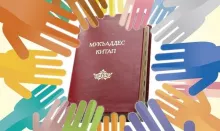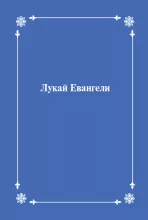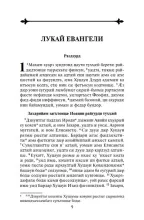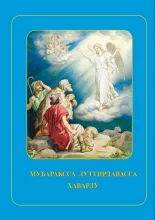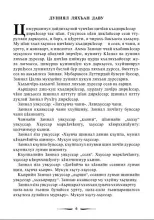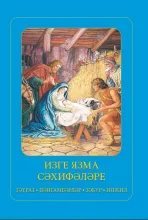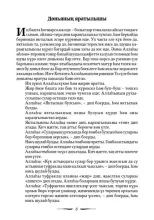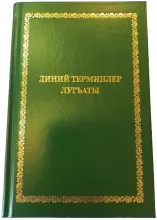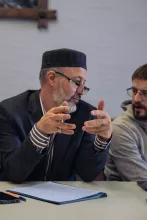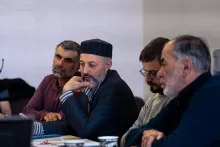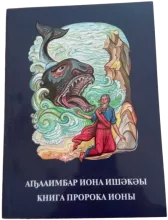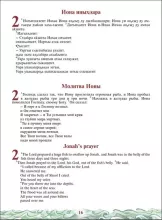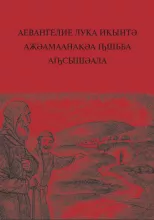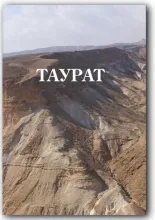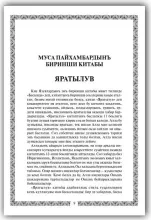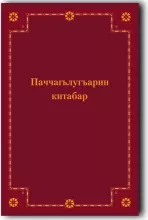news-25082020
Dear friends of IBT Russia,
An electronic donation system is now available on our website. By clicking on the "Contribute" button in the main menu, you can easily make a one-time or regular (monthly) donation using your debit or credit card. The donated funds will support our Bible translation projects.
news-27042024
The Digor variant of the Ossetic language is predominantly spoken by Ossetians from the western region of North Ossetia, specifically the Digor Valley and the Mozdok region. It is also spoken by Digors residing in Vladikavkaz and the eastern part of Kabardino-Balkaria, with the total number of speakers estimated at around 100,000.
The Digor community has an established literary tradition with newspapers such as “Digory Hubartt” and “Irf” being published. A Digor-Russian dictionary has also been published, and a Digor drama theater is operational. The Constitution of the Republic of North Ossetia-Alania recognizes both the Iron and Digor dialects of Ossetic as official languages in the region...
news-13022024
IBT has published a new edition of Bible Stories in the Lak language. This publication joins a series of previous translations, including the Gospel of Mark (1996), Gospel of Luke (2002, 2012), Gospel of Matthew (2016), Gospel of Luke and Acts (2019), and Gospel Parables (2020), all of which are available on the IBT website in the e-publications section.
Bible Stories is a collection of 58 narrative passages recounting the major events described in the Old and New Testament, from the creation of the world to Revelation. The book is a condensed version of the popular "Children's Bible" that IBT has been publishing in various languages for many years...
news-07022024
IBT has released the second edition of the Children's Bible in Tatar. This new edition has been carefully aligned with the text of the complete Bible in Tatar, published in 2015. The first edition of the Children's Bible has already become a rare find and over the past 12 years a new generation of young readers has emerged.
The Children's Bible is a collection of 250 Bible stories that recount the events described in the Old and New Testament, from the creation of the world to Revelation. This book contains retellings and direct quotations of selected biblical texts, ensuring a comprehensive understanding of these important events. To further engage young readers, each story is accompanied by a bright colour illustration that bring the stories to life...
news-06022024
he Crimean Tatars are a Turkic people, belonging to the indigenous population of the Crimean Peninsula. Their number in Russia according to the 2020 census is about 260,000.
The IBT Crimean Tatar Bible translation project was launched in the early 1990s. As part of this project, the following books were published: Gospel of Luke / Gospel of John / Acts / James (1996); Stories about Jesus Christ (2002); Prophets (2005); the Gospel of Matthew (2006); Wisdom of Solomon (2007); the Fourth Gospel and Acts (2008); Genesis, Exodus, Deuteronomy (2009); Psalms (2011). Finally, in 2016, the complete Bible was published under the name Mukaddes Kitab...
news-20012024
From January 15 to 20, the Institute for Bible Translation held a practical seminar on oral Bible translation (OBT) in Makhachkala.
Translators and exegetical advisers from the Tsudakhar, Godoberi, Chamalal andl Karata projects participated in this event. All four of these non-written languages belong to the Nakh-Dagestani language family. The oral nature of the use of these languages by their speakers determined the choice of the oral Bible translation methodology for them.
The workshop started with an introduction to the methodology of the translation process, providing the participants with a solid foundation for their practical exercises. The practical segment of the workshop focused on the 1st chapter of the book of Ruth, allowing the participants to apply the newly acquired knowledge and skills to a specific biblical text...
news-17012024
IBT released two editions in the Abkhaz language: the Book of the Jonah and "Gospel Parables".
The Abkhaz are the indigenous population of Abkhazia (122 2000 people, census 2011). According to the 2020 census 8,177 Abkhaz live in Russia. The Abkhaz language belongs to the Abkhaz-Adyg language family.
The book of Jonah has profound symbolic meaning. This short dramatic story of an Old Testament prophet who spent three days inside a large fish relates essential truths about human existence before God. This story applies equally to the prophet Jonah, individually to every human being, and collectively to the entire human race, and it raises such important issues as disobedience to God, repentance, and God's mercy...
news-25122023
After a rather long break IBT has released a new edition in the Nogai language - the Pentateuch, which includes a translation of the book of Genesis published in 2016 and new translations of Exodus, Leviticus, Numbers and Deuteronomy. The work on these books was a multi-stage process of translation, exegetical checking, editing, comprehension testing and consultations that took about 5 years.
The Nogai language belongs to the Kypchak group of Turkic languages. Nogai people are settled quite widely in the North Caucasus and in the Southern Volga region. According to the 2020 census, more than 109,000 people speak the Nogai language...
news-01122023
The Institute for Bible Translation continues to release the books of the Old Testament translated into the Tabasaran language.
Tabasarans is one of the indigenous peoples of southern Dagestan. There are 151,466 Tabasarans in Russia (Census 2021), they speak the Tabasaran language, which belongs to the Lezghi group of the Nakh-Dagestan family.
Previously, the following translations have been published in Tabasaran: the Gospel of Mark (1997); the Gospel of Luke (2000); Four Gospels and the Acts (2004); Stories about Jesus Christ (2010); the New Testament (2010); Ruth, Jonah (2013); Esther, Daniel (2016); Genesis (2018) and Proverbs (2018).

